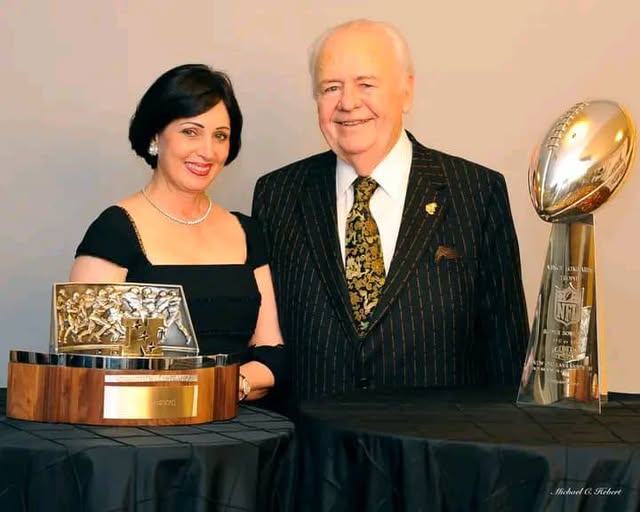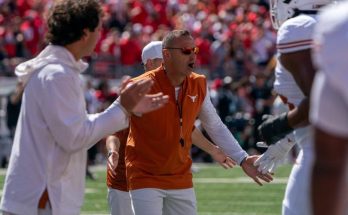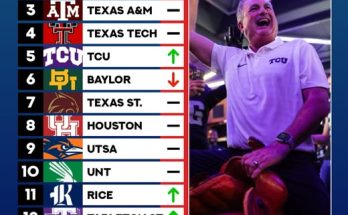**From the Superdome to the Silver Screen: How Tom Benson’s Legacy Is Still Shaping New Orleans Sports — and What’s Coming Next**
New Orleans is a city defined by its resilience, culture, and an undying love for sports. Few figures have left as indelible a mark on the city’s athletic landscape as the late Tom Benson, the visionary owner who transformed the New Orleans Saints and Pelicans into pillars of the community. His influence extended far beyond the football field and basketball court, shaping the economic and cultural fabric of the city. Even years after his passing, Benson’s legacy continues to reverberate through New Orleans sports, from the revitalized Superdome to the Pelicans’ promising future. And as the city stands on the brink of new opportunities—including potential NBA All-Star Games, NFL drafts, and even big-screen adaptations of its teams’ greatest moments—Benson’s impact remains the foundation for what’s next.When Tom Benson purchased the New Orleans Saints in 1985, the franchise was a perennial loser, more famous for its paper bags than its playoff appearances. But Benson, a shrewd businessman with deep Louisiana roots, saw potential where others saw futility. His early years were marked by struggles—both on the field and in the stands—but his commitment to the team never wavered.
The true test of Benson’s leadership came in the aftermath of Hurricane Katrina in 2005. With the Superdome ravaged and the city in ruins, many speculated that the Saints would permanently relocate. San Antonio, where the team had temporarily played, made a strong push to keep them. But Benson, despite initial hesitation, ultimately stood firm: the Saints belonged in New Orleans. His decision to reinvest in the franchise, coupled with the arrival of head coach Sean Payton and quarterback Drew Brees, sparked one of the most remarkable turnarounds in sports history. The 2009 Super Bowl victory wasn’t just a championship—it was a symbol of the city’s rebirth.Benson understood that a winning team needed a world-class stadium. Under his ownership, the Superdome underwent multiple renovations, transforming from an aging relic into a modern marvel. The post-Katrina upgrades, followed by additional enhancements in the 2010s, ensured that New Orleans remained a premier destination for major events, from Super Bowls to College Football National Championships.
But Benson’s vision extended beyond football. He recognized that the Saints’ success could fuel broader economic growth. The team’s resurgence helped spur development in downtown New Orleans, attracting businesses, tourism, and national attention. The Benson Tower, now part of the Ochsner Medical Center, stands as a physical reminder of his commitment to the city’s future.**
In 2012, Benson expanded his sports empire by purchasing the New Orleans Hornets (later renamed the Pelicans) from the NBA. At the time, the franchise was in disarray, with rumors of relocation swirling. Much like with the Saints, Benson’s ownership provided stability. He rebranded the team, embracing the Pelicans’ name as a nod to Louisiana’s state bird and rich wildlife.
While the Pelicans haven’t yet reached the heights of the Saints’ success, Benson’s investment laid the groundwork for a promising future. The drafting of Zion Williamson in 2019 brought superstar potential to the franchise, and the recent emergence of a young, dynamic core has fans hopeful. The Pelicans’ success isn’t just about wins and losses—it’s about ensuring that New Orleans remains a two-sport city, capable of drawing national attention year-round.The Saints’ and Pelicans’ stories are so compelling that they’ve begun to attract Hollywood interest. Rumors of a potential Saints-related film or series have circulated for years, with the 2009 Super Bowl run and the post-Katrina resurgence offering rich narrative material. Meanwhile, the Pelicans’ Zion Williamson era has all the makings of a future sports documentary or dramatization. Benson’s role in shaping these franchises ensures that his legacy could soon extend to the silver screen, introducing a new generation to his impact on New Orleans.As the city looks ahead, Benson’s influence remains a guiding force. The Saints, now under the ownership of his widow, Gayle Benson, continue to compete at a high level, with a renewed focus on sustained success. The Pelicans, armed with young talent and savvy management, are poised to become a Western Conference contender.
New Orleans is also positioning itself as a hub for major sporting events. The NBA All-Star Game, last held in the city in 2017, could return soon, while the NFL Draft—a spectacle that brings millions in economic impact—is another target. The Caesars Superdome, set for another round of upgrades, ensures that New Orleans will remain a top-tier host city for decades to come.
Perhaps most importantly, the Benson family’s philanthropic efforts continue to shape the community. From education initiatives to healthcare investments, their commitment to New Orleans mirrors Tom’s belief that sports franchises should serve as engines for civic pride and progress.Tom Benson’s story is one of vision, perseverance, and an unshakable love for New Orleans. He didn’t just own teams—he stewarded them, ensuring their success was intertwined with the city’s revival. Today, as fans pack the Superdome or cheer on the Pelicans at the Smoothie King Center, they’re participating in a legacy that Benson helped build.
From the darkest days after Katrina to the bright future ahead, his impact is undeniable. And as New Orleans sports continue to evolve—whether through championships, Hollywood adaptations, or new generations of stars—one thing is certain: Tom Benson’s fingerprints will always be part of the game.



